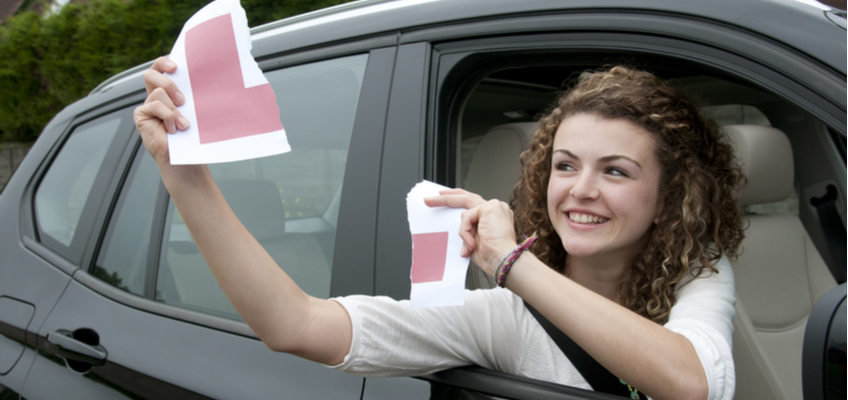Money Expert > Car Insurance > What to do if you fail your driving test
What to do if you fail your driving test
Last updated: 18/05/2022 | Estimated Reading Time: 5 minutes
Money Expert > Car Insurance > What to do if you fail your driving test
Last updated: 18/05/2022 | Estimated Reading Time: 5 minutes
Time, cost and a whole lot of effort: failing your driving test can feel like a big blow. Yet this does not make you a failure.
We outline how likely it is to get a pass first time, what the most common driving fails are caused by and give you some top tips for the next steps, so you can be best prepared to get that pass second time around – because you will!

DVSA statistics confirm that less than half of applicants pass their driving test first time – in fact, you’re in the minority if you do! So, while it may feel that all your mates are getting their pink licences, keep in mind that it’s very common to not pass first time.
You’ll fail your driving test if you perform just one major fault – this is something that either potentially or directly causes danger to yourself, someone else or property. You’ll also fail if you receive three or more minor faults in the same category.
Let’s take a look at some of the most common reasons people fail their driving test.

If you’ve received a fail, then take a look at our top tips to plan your approach to getting that pass.
When people fail their driving test, they tend to take one of two routes. They either want to book their next one immediately, or the fear creeps in and it gets put off. We encourage a happy medium.
Take a reasonable time to process the news and form a plan. Speak with friends and family about how you’re feeling and ask for help and advice. It’s likely you’ll be feeling sad and disappointed, but the shock of those feelings will pass if you give them time. Then you’re in the right frame of mind to approach the next steps!
Failing your driving test can be unnerving, but don’t let that deter you. There are scores of stories from across the country from people who have failed a quite frankly impressive number of times (we’re talking hundreds!) but ultimately passed. It’s unlikely this’ll be you, considering that of those who don’t pass first time, most do within 3 attempts.
But we can learn some advice from these tales: don’t give up! While failing can feel like a setback, here’s the hard truth: putting off getting back behind the wheel will only increase your nerves and make it harder to face your test again. Continuing to apply those skills while they’re fresh is the best way to improve.
Don’t be afraid to ask for feedback – in fact, it’s the best thing you can do. Your instructor has a duty to ensure that everyone who passes their test is a safe and competent driver, so enquire as to where you need to improve.
Do this as soon as you receive your result, so you can start working on these in your lessons, having an open dialogue with your driving instructor about the specifics you need to practise. Your instructor has a vested interest in ensuring your success, so use that guidance to get the most out of your experience!
Once you know what you need to work on, practise it. Practise really does make perfect. If you failed your driving test due to a manoeuvre, request an entire session on these skills. If you fell down on road signals, revise the Highway Code.
Driving is a mechanical skill that really only gets honed the more you do it. The very best thing you can do is continue practising until you feel confident in all areas you failed on.
If your driving experience has only been in a lesson format with your instructor, consider practising with a qualified adult as well. You’ll need provisional driving insurance to do this, but it’s a great way to get additional driving exposure.
Rebooking your test works in exactly the same way as your first one. Once you feel ready (and your instructor agrees) look for available slots; these will need to be at least 10 working days after your first one.
If what you failed on feels fairly achievable to overcome with practise, then it’s worth getting a date in the diary sooner – as mentioned, delaying can cause increased nerves and worry. Remember too that your practical test must be taken within 2 years of your theory, so even more reason to get it booked in. If no appointments are available, it pays to regularly check for cancellations.
In some instances, you may be able to dispute your failed driving test result. Examples of this include discrimination from your instructor or if you feel they did not act within regulations. While you’ll still need to rebook your test – it won’t change the outcome – you could receive compensation for the booking costs.